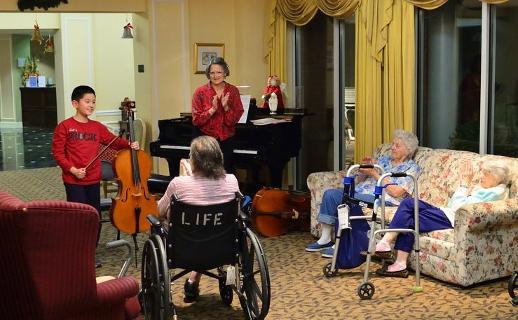
Here are some indications that a student will succeed and enjoy the cello:
Patience and a no hurry atmosphere. The cello is a difficult instrument to learn, especially in the first few years, since the student must learn to balance while sitting and coordinate both hands which are doing very different movements. All the while the student must be listening since the goal is to make a beautiful sound while playing in tune. No matter how gifted the student, these things take time, a long time, to build up.
Another important factor is belief in self. (Please parents: encourage and praise your child! Praise them for completion of tasks such as a home practice or a performance rather than criticize for mistakes or what you might think is poor quality). Having the drive to keep trying even in the face of failure is important. Every parent wants their child to develop high self-efficacy in order to learn to the very best of their ability. I like what Mother Theresa says, "Criticism eats up all the love of God". Your role in helping your child to learn the cello, is a supportive role. You are assisting the teacher, so ask the teacher for advice if problems arise.
If the student is motivated to learn from a love of music, this is the best motivation. If a parent loves music and goes to concerts with their children because they just love to hear music and musicians, that is the best way to hand down a love of music (it also creates a great bond between parent and child).
Parents often don't realize that students who have learned cello in school sometimes need a certain amount of unlearning, since unhealthy habits can crop up especially in school groups where there is little feedback from teacher to individual student. Private lessons on a long term basis with good teachers are essential.
I often ask my new students if they have studied piano or sung in a choir because this is excellent preparation for learning the cello. Dancing, which enhances body awareness, is also a great preparation or co-study.